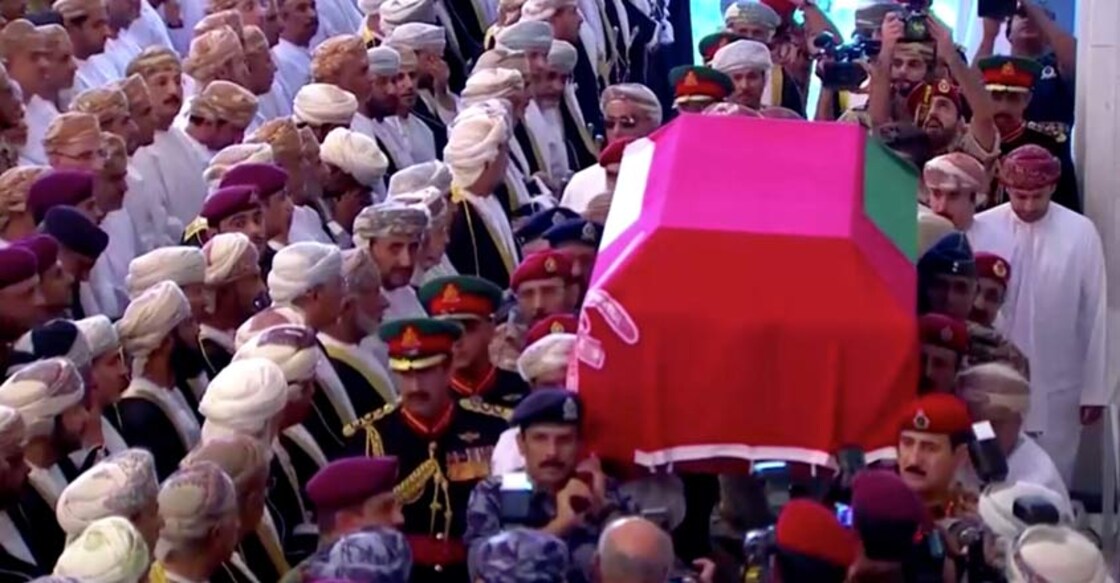Sultan Qaboos: reformer and 'quiet peacemaker'

Mail This Article
Sultan Qaboos bin Said’s popularity is unparalleled in the Arab world. His reign is marked as much by the length of his tenure as the stress on welfare.
He led his people from darkness to light and progress. He came to power on July 23, 1970 after challenging his father in a bloodless coup. He transformed the backward country in just 50 years. His tenure is rightly called the Omani renaissance.
He stressed on education, health care and women’s progress. From a handful of schools and religious instruction centres, Oman has grown to a country with smart schools in every nook and corner. Almost all parts of the country have a university. Citizens are assured of free education up to the university level. They are also actively helped by the state to pursue higher education in foreign universities and research centres.
When Sultan Qaboos captured power, Oman had just two hospitals. Today, all provincial centres have sophisticated hospitals and all villages have primary health centres.
Sultan Qaboos ensured equal participation for women at every level of society. Women have asserted themselves in every profession. They work as doctors, engineers, professors, pilots and even ministers. Women are in charge of four key ministries including higher education.
Today it is hard to imagine that Oman had only seven kilometres of surfaced roads 50 years ago. The entire country has been linked with an excellent network of roads. Infrastructure gets the most of the investment along with education and health care.
Sultan Qaboos had a cordial relation with India. Shankar Dayal Sharma’s state visit as the president of India is etched in the memory of every Indian expatriate in Oman. Sultan Qaboos, once a student of Sharma in Pune, violated all protocol to welcome his teacher to Muscat.
He granted Indians every right to pursue their religious, cultural and education wants. One of the dominant sections of Omani society is the Gujarati community which migrated to the country centuries ago. Perhaps the oldest Hindu temple in the entire Gulf is the one which was built for the Gujaratis in Oman in the 19th century.

Sultan Qaboos granted land to build many temples and churches across Oman. The latest place of worship to come up in Oman is a Sikh gurudwara on the occasion of the 500th birth centenary of Guru Nanak.
Half of the 20 Indian schools in Oman function on land allotted by the Sultan free of charge. The Indian Social Club is spread across the country with three branches and 28 language chapters and thousands of members.
He had a special place for Malayalis in his heart. He appointed people from Kerala to key posts including in the defence sector. It was no coincidence that Malayalis rose to prominent positions in manufacturing and construction sectors. One apt example is P Muhammed Ali of Gulfar who was bestowed with the highest civilian honour of the country, the Oman Civil Order of His Majesty Sultan Qaboos bin Said.
Sultan Qaboos will be remembered for his efforts to safeguard peace around the world. He was called the “quiet peacemaker” by world leaders. He played a key role in ensuring peace in the region. He played the mediator to avoid strife many a time. He was in friendly terms with neighbours. His foreign policy was based on a desire for peaceful coexistence.
He is highly regarded by the citizens of his country. He would go to the people every year for almost a month to get feedback from them. He did this until health permitted. He attended the “meet the people” sessions with all members of his cabinet.
His visits to various parts of the sultanate were celebrated by the people. He listened to the people’s grievances without any mediator and acted on the complaints and suggestions. The transparency explains why Oman was not affected like its neighbours during the Arab Spring.
While rulers in many countries faced popular wrath in mass protests, Omanis took to streets with large pictures of their Sultan. Four years ago, when he returned from Germany after treatment, the entire country erupted in celebration. When his health deteriorated last month, the people were immersed in prayers for him.
Sultan Qaboos was not married. Oman did not have a Crown Prince as in other Arab countries. Though he had not picked a successor, he had made provisions for it in the basic law. He chose his successor in his will but kept it a secret until his death. Perhaps he wanted to avoid a power tussle after his death.
Sultan Qaboos’s choice, Haitham bin Tariq al Said, was sworn on Saturday morning in a modest ceremony. He shares his predecessor’s affection for Indians.
The demise of Sultan Qaboos is painful for me, like every long-term resident of the country. I take this opportunity to pay my respects to him.
(The writer is the Community Welfare Secretary of the Indian Social Club, Oman)

